Public and private schools contributed to my formal education. My conservative brothers and sisters may insist that the public school experiences contaminated me and resulted in my liberalism on some subjects, especially social issues. On the other hand, my liberal brothers and sisters could insist that my time spent in private schools led to my conservatism, most often exemplified through economic issues.
Formal Education as the Beginning
I used the descriptor, “formal education,” in the opening paragraph to indicate education should be a lifelong process. Accordingly, I continue to seek information leading to knowledge about a variety of subjects and through many sources, e.g., books, newspapers, magazines, the Internet, PBS, and NPR. Sometimes this information is of value to my continuing education. I seldom look at TV newscasts or listen to radio broadcasts from either liberal or conservative sources other than from PBS and NPR,—especially the BBC programs on KUT, our local NPR station.
From my perspective, formal education should primarily lay the foundation for a lifelong commitment to education. For instance, after I received my Ph.D. in Biochemistry from the University of North Carolina at Chapel Hill and finished my post-doctoral work at the Albert Einstein College of Medicine in the Bronx, NY, success in my professional careers markedly depended upon my keeping abreast of my fields through journal articles, seminars, and face-to-face conversations.
A Personal Educational Odyssey
I began my formal education in the first grade in Chickasaw, AL, where my father worked building Liberty Ships during World War II. The war ended and we moved back to our hometown, LaGrange, GA, where I attended public schools through high school. Bela Lancaster was the school superintendent and many people at the time credited him with bringing our school system, for whites, to equivalence with Atlanta public schools. I don’t know about the validity of this contention. While in the LaGrange system, I enjoyed many good teachers and suffered through a number of bad teachers. I probably gained as much educational experience through the many novels I read as I did in most of the classrooms. By the time I entered LaGrange College, I felt reasonably prepared for a college education except in mathematics. Nevertheless, had I taken Differential Equations in my senior college year, rather than Introduction to Philosophy, I would have had a third major—in mathematics—to go with my majors in Biology and Chemistry. This initial exposure to philosophy was the single most valuable course I took as an undergraduate. The textbook left a lot to be desired but Prof. Kovar was outstanding in stimulating conversation in the classroom.
Again, in college, I was exposed to good and bad teachers, including one perfectly awful Physics instructor. I came to wonder how LaGrange High School actually compared with the supposedly equivalent Atlanta schools. Many of the students from Atlanta seemed to have been better prepared academically than I was. Despite gaps in my education, one idea drove me to academic success: I early in my life realized that a good education was a major factor that would allow me to rise above the circumstances into which I had been born. My parents, neither of whom graduated from high school, saw little need for my higher education but that’s a subject for another blog post.
In graduate school, I soon learned that my peers who had attended elite private schools in the northeast were much better prepared than I was. And, about half of the faculty were good teachers, a quarter were mediocre, and another quarter were abysmal. So, I buckled down and worked hard, the desire for an advance degree motivating me. A strong curiosity about how the world works and the joy of discovering the secrets of creation propelled me onward.
From the Specific to the General?
I hesitate to draw general conclusions about education from my personal experiences; however, some conclusions might be appropriate. First and foremost, the desire for an education seems of paramount importance. Second, if sufficiently motivated, students can overcome poor teachers by seeking information in textbooks and other sources. Great teachers make the process easier but the information is available in textbooks. Third, inadequate preparation due to poor schools also can be overcome, if students are sufficiently motivated and interested.
How To Improve the System?
The tile of this post is, “What’s Wrong With Our Educational System?” I won’t go into a discussion of the problems with our educational system. Most of these difficulties are well known. I see no reason for criticizing the system simply for the sake of criticizing. I prefer rational critiques that may lead to a better educational system.
I think we might devote much of our energies in the following, but not exclusive, areas:
1. Improve the across-the-board quality of our teachers by making entry qualifications more rigorous and establishing effective criteria for teachers to remain in the system. That is, increase the professionalism of all teachers and pay them commensurate with that status. No, high stakes testing and teaching to the test do not qualify as effective teacher, or student, assessments. No one should assume that I believe all of our teachers are substandard. I know a number of excellent and dedicated teachers at all levels of our school systems.
2. Improve the quality of our students by instilling in them a love of education and a realization of what benefits can come from a good education. Yes, we also need to improve the quality of our students’ families so they will support rather than hinder the education of their children.
3. Realize that one model does not fit all students. Because “we’ve always done it that way” doesn’t cut the mustard in today’s world. In this respect, distance learning from highly qualified faculty intrigues me.
In searching for solutions, I’m pre-disposed to maintaining, while massively improving, our public schools. I firmly believe that not everything should be for sale, especially the education of our children. That perspective leads me to oppose “for profit” schools and charter schools. Educated students must be the profit from our schools.
How would readers of this blog propose improving our educational system? Please comment directly on this blog. I look forward to the comments.
If you enjoyed reading this blog post, please consider purchasing my novel, Comfort and Affliction on Amazon or Barnes & Noble.




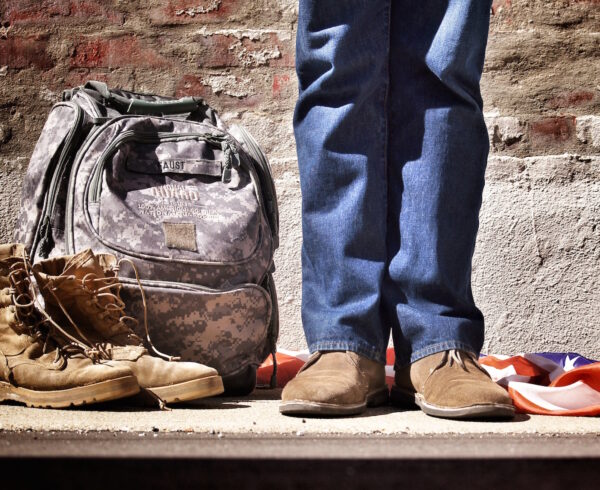
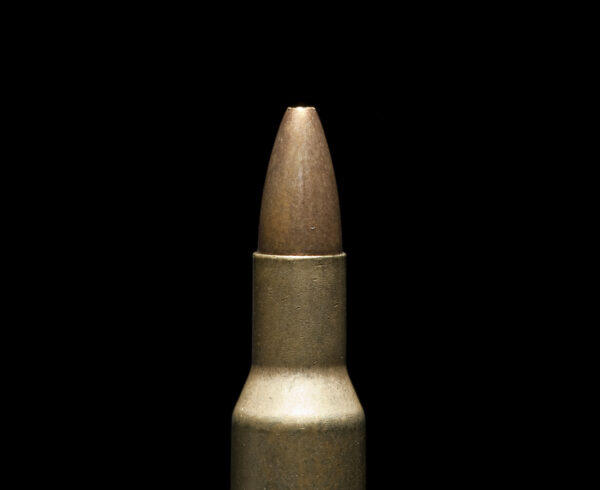
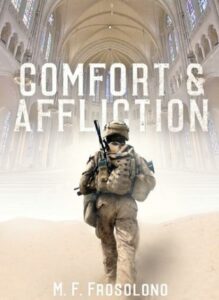


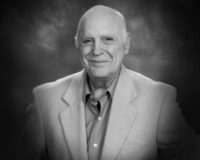
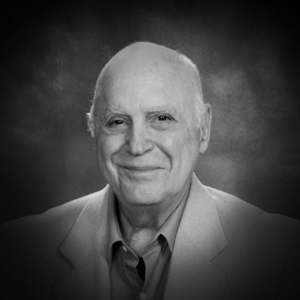
I believe that much of our society today (both parents and students) view education as an entitlement that they deserve rather than something they should work at. There is too much expectation for fun and good grades without the work required. If I could do anything to “fix” our education system, I would take away all the goodies such as buses, cafeteria food, field trips, electives, etc. and have the day be shortened to just the time needed for actual academics. If students and parents value education, they would make the required effort to be there; if it doesn’t matter to them, then the school system isn’t having to act as free child care and entertainment. I also think we need to strengthen our vocational education and quit thinking that a 4-year college is the answer for everyone we teach.
The four major problems with the school system are that English teachers have too much control over the system, history focuses too much on who and when and not enough on why, the way math is taught turns off students who are not competitive by nature, and most schools are too small.
Why is it that a student needs four years of English to graduate from high school, but only two years of math or science? Even with four years of English, students are not taught the basics of writing. Students are forced into creative writing, but are not taught how to present facts clearly and succinctly. Why is there such a focus on classic English and American literature? What about great authors from non-English speaking nations? What about contemporary authors? But the real question is why Steinbeck, Shakespeare and the Bronte sisters are mandatory, but Mozart and Rembrandt are optional (if available at all)? Required English could be reduced to two years and focus on grammar and basic writing skills. Literature should be an elective and given the same importance as music and art.
Does it matter who shot Archduke Ferdinand or in which year he was shot nearly as much as why he was a target or how this event propelled the world into war? If we are to learn from history, we need to focus on why things happened the way they did rather than when they happened, yet the reasons behind historical events and the way these events shaped the future are ignored. Most students know that the Battle of Hastings was in 1066, but very few have any idea of what the battle meant of how it changed the course of history.
From the first grade, arithmetic is taught as a series of speed drills. Teachers have lost focus of the fact that it matters more that the student understands what addition, subtraction, multiplication, and division are and that the student can get the correct answer than it does how fast the student can solve the problems. People wonder why most girls (and some boys) are turned off by math. The simple reason is that most girls (and some boys) tend not to be as competitive and do not care who can answer first. All they care about is getting the correct answer, but from an early age, speed is the only thing that is rewarded. Teachers have explained to me that the reason for the speed drills is that they want to be sure that the students have memorized the answers instead of counting on their fingers. Why should that matter? The only thing that is important is that the student knows how to get the correct answer. I have spent most of my career deriving complex mathematical equations to explain the rise and fall of plasma drug concentrations as the drug dissolves from the dosage form, is absorbed by the body, is distributed throughout the tissues, and is eliminated from the body, yet I still count on my fingers when I reconcile my checkbook. The fact that I understand and know how to apply the concepts is far more important than whether I have memorized addition and multiplication tables.
Too many politicians and school boards have wrongly taken the leap that if small class size is better than large class size, then small schools should be better than large schools. The problem with small schools, especially at the middle school and high school level is that there are not enough students with common interests to allow a wide variety of elective courses to be offered. I believe that having small classes in a big school is the best approach. In North Carolina, where most high schools have fewer than 1200 students, I have seen schools forced to drop French, German, AP English, AP history, and AP calculus because there were not enough students interested in taking the class. If there were fewer, but larger, schools, there would be enough students to justify offering these classes. Although larger schools would require more teachers per school, and perhaps the same overall number of teachers per district, there would be a savings by reducing the administrative and support staff, since the number of those positions are more directly tied to the number of schools rather than the number of students.
Larger schools also help to reduce the problems of cliques and bullying. In small schools there are always a few students who do not fit into any established social group. These students end up being ostracized and become the targets for bullies. In large schools, there is a critical mass of these students who can form their own social networks, and they are no longer considered loaners or outsiders.
While I agree with Martha that parents and students view education as an entitlement, and I agree that we need to strengthen our vocational education programs, I strongly disagree, however, that we should take away busses, cafeteria food, field trips, or electives. In areas with high population densities and good public transportation, doing away with busses might be possible; however, in most of the country the population density is too low to have schools close enough to the students that the students can walk, and most parents are not able to both drive their children to school and pick them up when school is out. One or the other is often possible, but not both. For far too many students, the school lunch is the only decent meal the child gets in a day. Students do not learn when they are malnourished. Some school districts, including my home town district (Jefferson County, KY) have gone so far as to provide free breakfasts and lunches to all students. Field trips are often the only way that many students will ever have the opportunity to visit historical or educational sites. Not all education occurs in the classroom and not all parents have the means to expose their children to these experiences. Electives are necessary to allow students to explore different things, which will help steer the student into an educational and career path that will shape the student’s future. Without having orchestra as an elective, my youngest daughter would not have received a scholarship to play viola in the UNC orchestra, nor would she have had the opportunity to perform at the United Nations, the Lincoln Center, the Spoleto Festival, or on a cruise ship in the Caribbean. Without an engineering elective, my older two daughters would not have gone on to become mechanical engineers (yes, I have two daughters who are mechanical engineers, which proves that girls can excel in math if the elementary teachers are not allowed to take the fun out of it). Without AP chemistry and AP calculus as electives in high school, I would not have received my doctorate at 25 years of age. Without AP calculus as an elective in high school, my daughters would not have had the opportunity to tutor math and become undergraduate teaching assistants in college. I would reduce the number of required courses and increase both the number and the scope of the electives.
I agree with Rick that we shouldn’t eliminate buses, field trips, cafeterias, electives, etc. I do agree with Martha’s point that we need more parental involvement with students and the school system. While reading through Rick’s comments about electives, I had to struggle to remember what elective courses I took in Jr. High and High School. Band was one elective: I played the clarinet–not well. At LaGrange High School, we had to take two years of a foreign language: I chose Spanish but, in retrospect, I wish I had taken Latin in addition. We were required to take at least one year (possibly two?) of science: I chose Biology and Chemistry but wish I had also chosen Physics. We had to take two years of algebra; I added plane geometry–possibly as an elective–but wish I had taken trig and solid geometry. I enjoyed my four years of English, even my junior year when the English teacher was a little flaky. While reading McBeth, she kept pronouncing “whore” as “wore.” She didn’t like my attempt to correct her. I am a fervent basketball fan, especially with respect to UNC-CH; however, I probably would eliminate all athletics programs except for a four-requirement for during the school day intramural sports. I recall gym classes at LHS being a pluperfect disaster. I like Rick’s idea of larger schools in order to offer more electives and decrease the importance of cliques; however, bussing would necessarily be involved.
One more thang: Rick may recall that I worked to increase the writing ability of many of the people who worked with me, keeping in mind that a lot of people wrote better than I. The point is that, no matter how good our science may be, we need to communicate well in order to show what we’ve done. I think good oral and writing skills can be invaluable for many professions and jobs. From that perspective, I think English classes should focus a great deal of energy on writing and oral presentation skills.I agree that we should keep part of the Western canon in literature but also expose students to the literature of other cultures.
I have several concerns for what I see as the ultimate weakening of our educational system :
—–The goal of graduating everyone has created a pattern of diluting the offerings. We cannot clone kids. Some are very bright, most are average, and some are less capable. We have attempted , and , in many ways , been successful , in recognizing the differences. The flaw is in the response to that. We need paths for kids who drop out. There are places in society for people who don’t have high school diplomas so long as they have another skill to offer. Our brightest kids , our leaders of the future, are losing out with this desire to make everyone equal in education, knowledge, and goals. It simply does not work.
—–The loss of the autonomy of the classroom teacher. And I’m speaking from the high school position. High school teachers take great pride in their specialty, whatever it is. We have sent a message to them that some bureaucratic power knows more about their field than they do, and , therefore, they must follow stringent, inflexible guidelines called standards. One of the things that I am proudest of in my tenure as high school administrator is that I served as a buffer between my faculty and the bureaucrats . Without crossing any legal lines, I allowed my teachers to close their doors and ” teach “.
—–The 12th grade is obsolete. Many kids ( more every year ) are choosing the option of joint enrollment , taking college courses that give dual credit. We have added pre-school and kindergarten at the beginning . We need to eliminate the 12th at the end. Not only does it make sense educationally, but look at the financial gain to already struggling public school systems.
—–And I won’t go into standardized testing ; that’s beating a dead horse !
My passion is education . I have devoted my professional life to it , as teacher, administrator, school board member , parent, and grandparent. I truly am heart-broken at the direction it seems to be going.